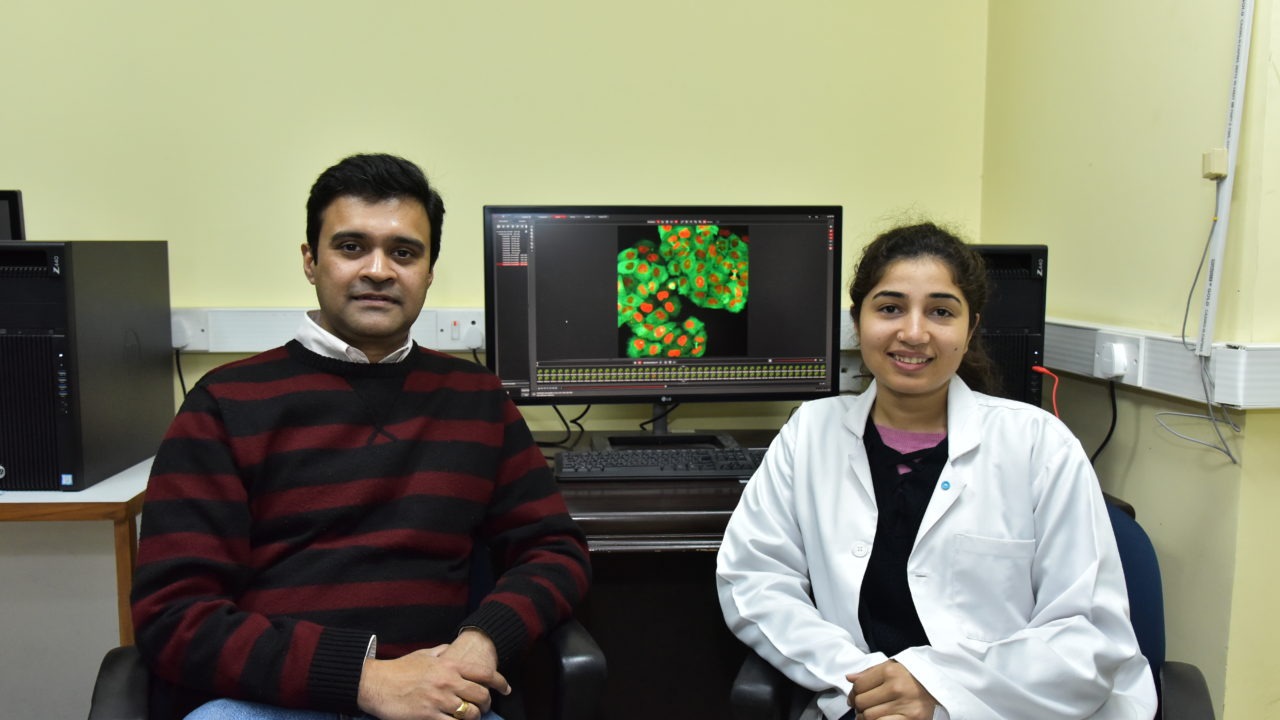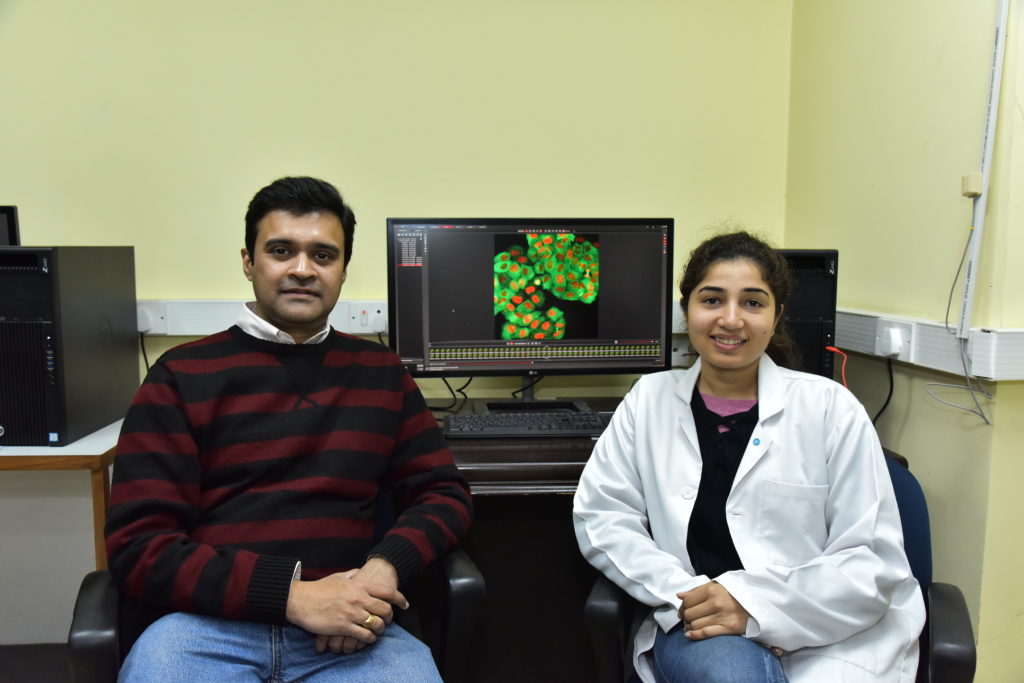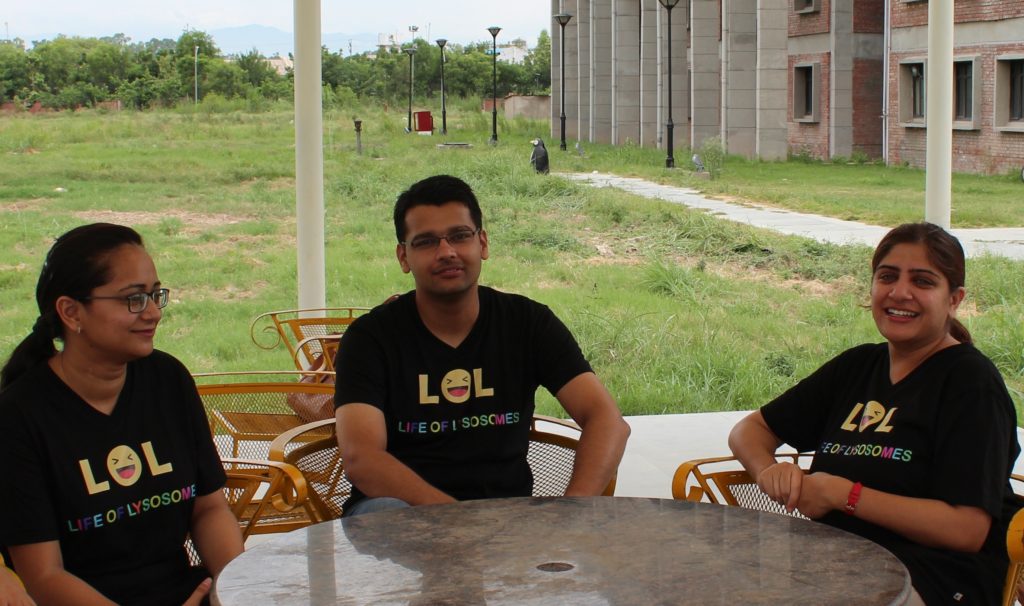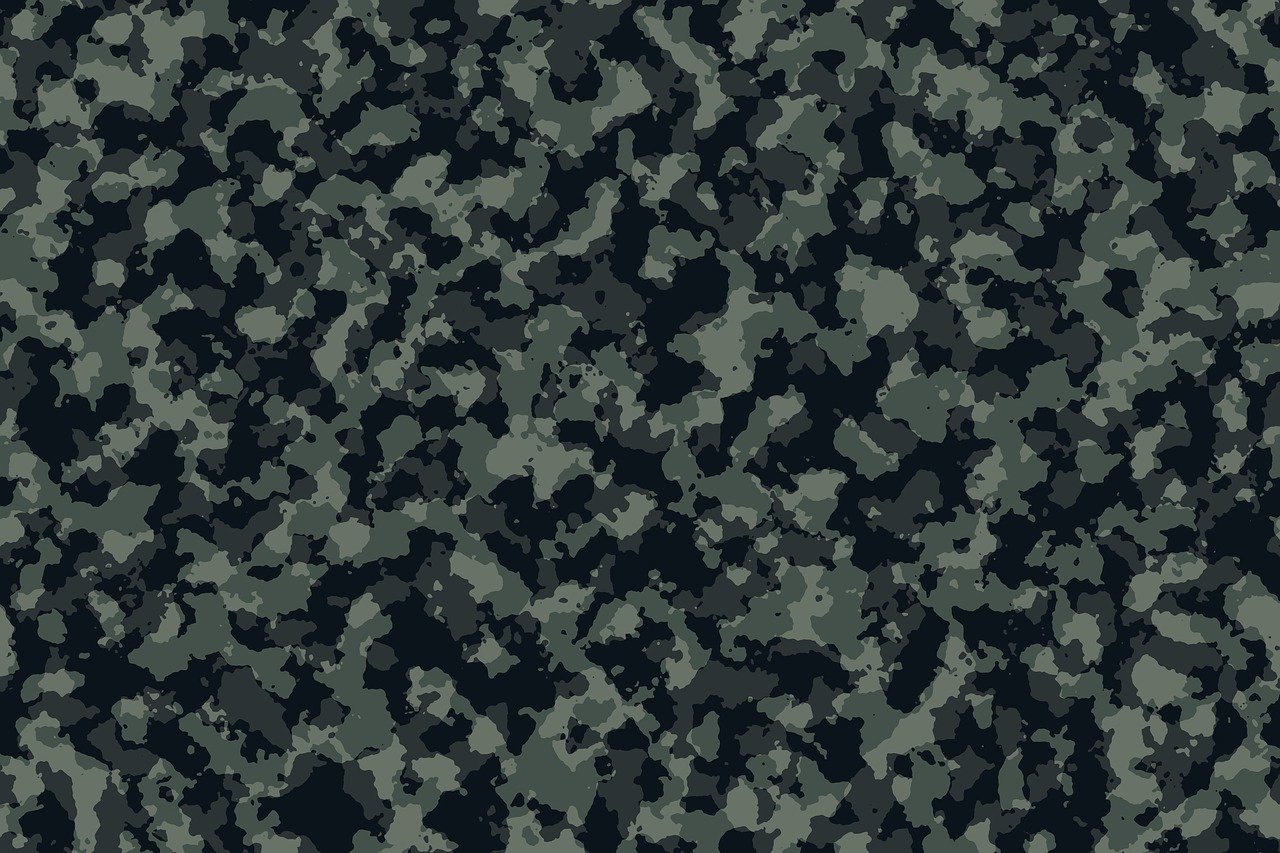
Scientists Present New Regulatory Clues to Mammalian Cell Division
- News
- 4.3K
Indian researchers have revealed the regulatory role of a protein in the process of cell cycle progression and separation of newly formed mammalian cells. This study may help to understand uncontrolled cell division related cues because many regulatory proteins of the cell cycle, such as the one that reported in this study, are mutated in cancer cells.

Scientists have known that dynein, a molecular machine- that generates force to move cellular cargo from one location to another, plays a crucial role during the cell division especially in dissolving or breaking nuclear envelope and separation of the chromosomes into two daughter cells. However, how dynein simultaneously performs multiple functions at multiple places largely remains an active area of study.
Now in a collaborative study published in the Journal of Cell Biology, research team of Dr. Mahak Sharma at Indian Institute of Science Education and Research (IISER, Mohali) and Dr. Sivaram V. S. Mylavarapu at Regional Centre for Biotechnology (RCB, Faridabad) – have uncovered the role of dynein binding partner and member of Hook family of protein, Hook2 in regulating specific dynein localization and thereby the tasks associated with these subcellular locations.

“We have been exploring the role of a recently characterized family of proteins known as the “Hook proteins” that bind to dynein and regulate its location and cellular function. Our gene silencing experiments revealed improper cell division upon loss of a Hook family member, and we started to pursue its role in dynein activation and mitosis,” said Dr. Mahak Sharma, Scientist at IISER, Mohali and study leader in this study.
During the separation process of newly formed cells, communication and the material transfer happen by transport of cellular cargo. “The transport itself is executed by the molecular machines or motors that generate force to move cargo on the cellular highways or as scientifically called “microtubule tracks,” explained Devashish Dwivedi, the first author of the study.
In this study, microscopic imaging of cultured human cells were performed to determine the defects in cell division process when cells were depleted of the dynein or its newly identified regulator. “We observed that Hook2 is behaving like linker protein—that binds to dynein and dynactin and regulates the function of dynein during cell division,” said Dwivedi.
“Earlier studies have reported chromosomal translocations in the Hook protein in various cancer cells. Since unregulated cell division is a hallmark of all cancer cells, our findings might provide a partial explanation of why such changes in Hook2 gene locus might be a contributing factor in governing cancer progression,” added Dr. Sharma.
Besides Sharma M., Dwivedi D, Rathi S from IISER-Mohali, research team included Kumari A and Mylavarapu SVS -from RCB, Faridabad. The study was supported by Wellcome Trust/Department of Biotechnology India Alliance, and Science and Engineering Research Board (SERB), Govt. of India.
If you liked this article, then please subscribe to our YouTube Channel for the latest Science & Tech news. You can also find us on Twitter & Facebook.


